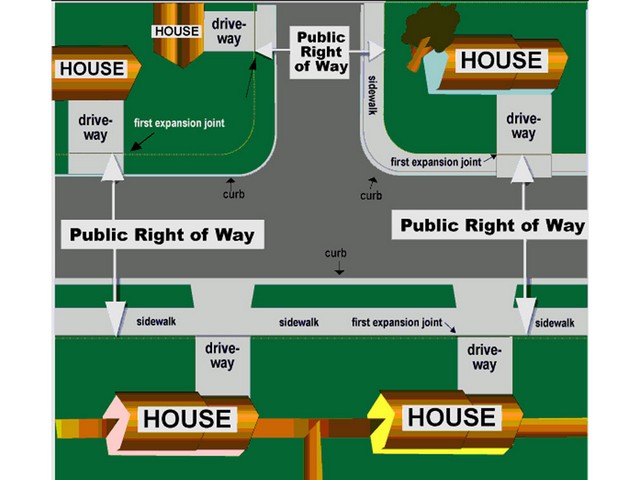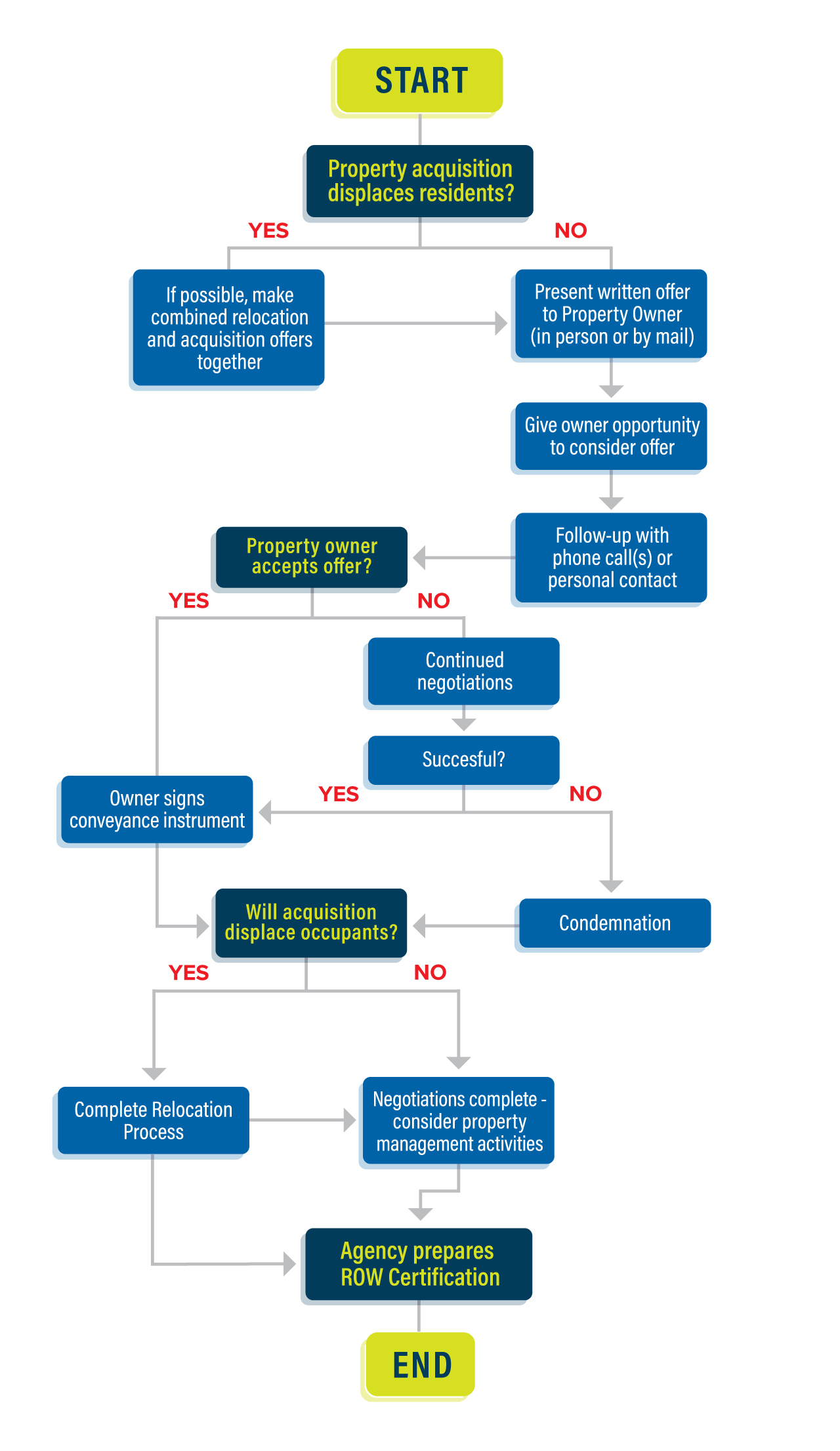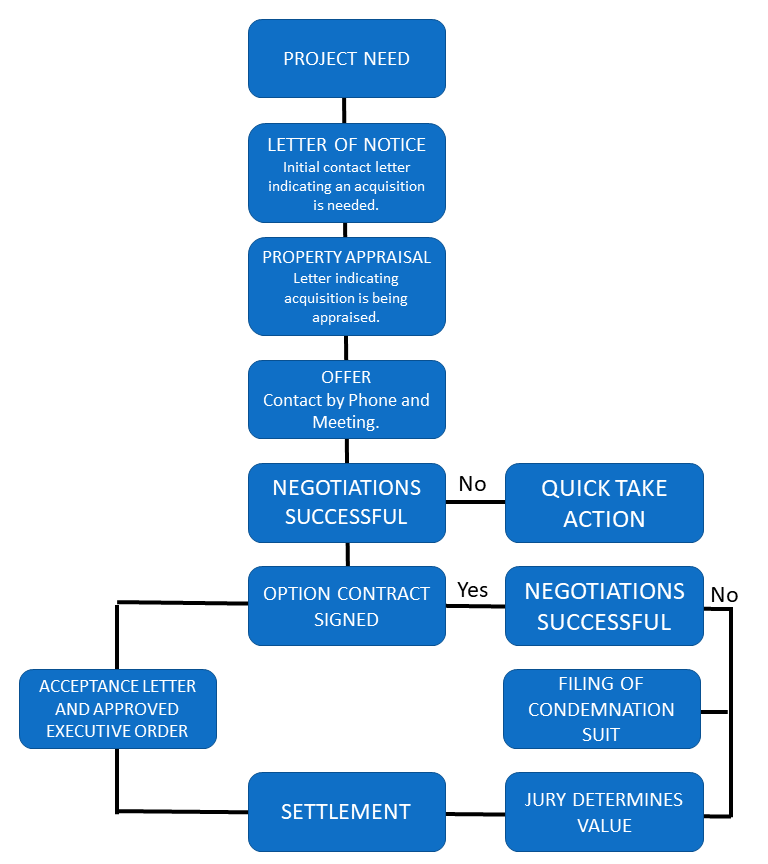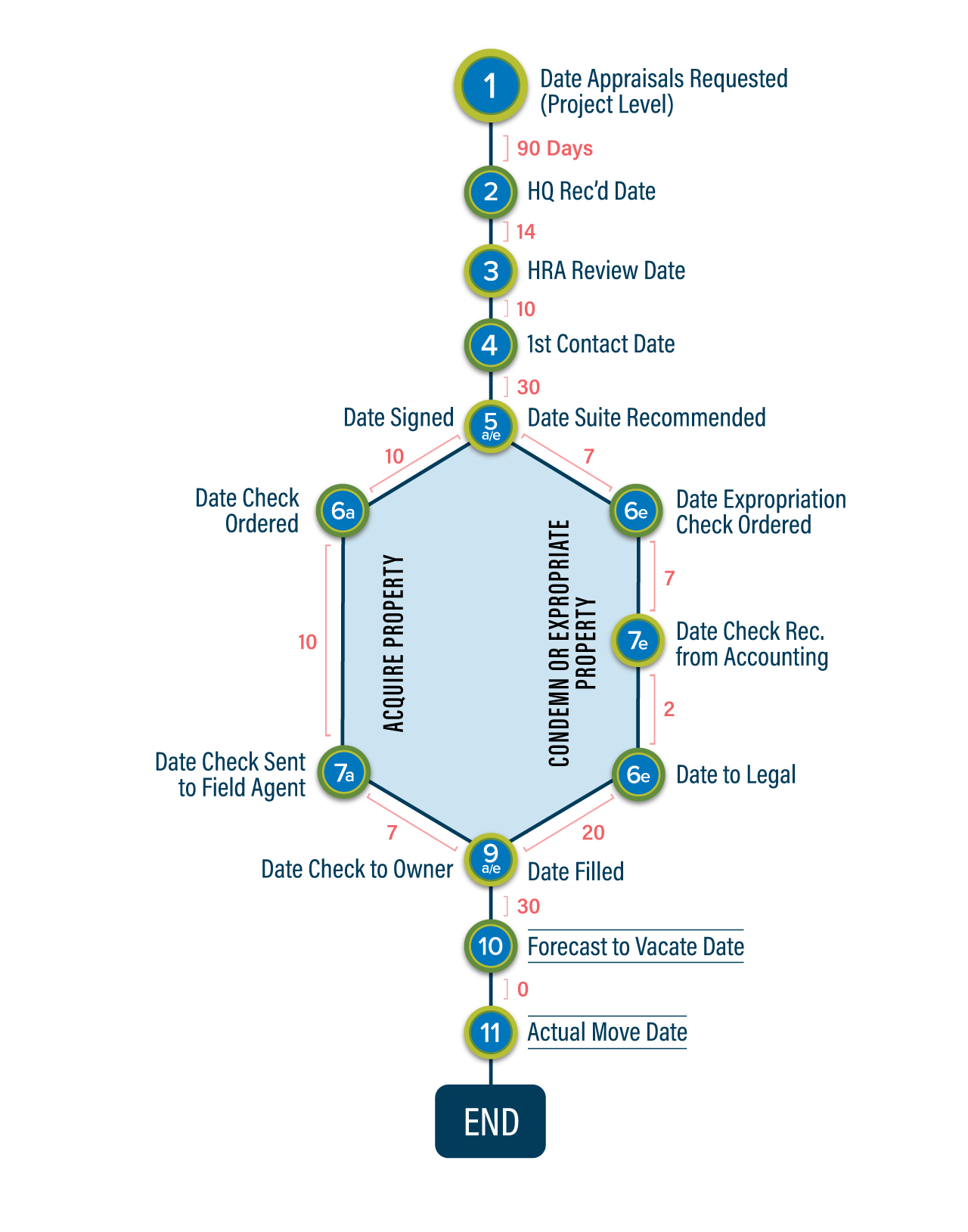October 19, 2021
A right-of-way (ROW) is a type of easement granted or reserved over the land for transportation purposes, such as a highway, public sidewalk, or bike path. ROWs may also be established for utility purposes such as drainage ditches or pipes, electrical transmission lines, telecommunications lines, or oil and gas pipelines.

Public Right-of-Way
In the scope of the Move Ascension transportation improvements program, additional rights-of-way must occasionally be acquired from property owners of land fronting the roadway. Most often, this is the negotiated purchase of a sliver of land to allow widening of a roadway, provision of a sidewalk, relocation of utilities, installation of drainage infrastructure, or a combination of these. The amount of right-of-way to be acquired varies according to the specific project and site requirements, and the process for acquisition varies according to the governmental entity acquiring the ROW: local government for local roads, or State DOTD for state highways. Below are process examples from Federal, State and local governments.
General Land Acquisition Process
The flow chart below illustrates the process by which land parcels, or portions of parcels, are acquired. This high level graphic omits several steps, such as landowner notification, property title research and update, etc.

This alternate depiction of the process provides additional information. It too is a high-level graphic omitting steps such as title research.

LA DOTD Real Estate Parcel Activity Timeline
Louisiana’s Department of Transportation and Development Real Estate Section utilizes a computerized tracking platform entitled the Appraisal Acquisition & Relocation System (AARS). The graphic below, sourced from DOTD, illustrates that the process can take 200 or more days to acquire just one property parcel for a State roadway project.

Refer to DOTD’s website for additional information including:
- DOTD Real Estate Operations Manual

- Acquisition Forms and Letters
- Manuals utilized by DOTD staff, identifing policy and procedures.
Federal Highway Administration LPA Requirements
When local governments or agencies accept federal aid funding for projects they are required to enter into Local Public Agency agreements. The tables below depict requirements for the steps in the land acquisition process.
Local Public Agency Acquisition Requirements on Projects with Federal Funding on any Phase of the Project
| Acquisition Requirements | Parish Approval Required | Federal Funds - LDOTD Approval Required |
|---|---|---|
| Title Research/ Abstracts of Title | ||
| Verify Ownership Information and Mailing Addresses | ||
| Preliminary Acquisition Notice | ||
| Appraisal Plan | X | X |
| Appraisals, Cost Estimates, and Appraisal Reviews | X | X |
| Mortgage Certificates (acquisition of entire parcel or damages as concluded by appraisers) | ||
| Certificate of Just Compensation | X | |
| Just Compensation Offer Packet | ||
| Negotiations (acquisition of parcels in fee, temporary construction servitude and/or utility servitude) | ||
| Counteroffers/Administrative Settlements | X | X * |
| Mortgage and Partial Mortgage Releases (acquisition of entire parcel or damages) | ||
| Check Requests | X | |
| Preparation of Closing Documents | ||
| Title Update prior to Closing | ||
| Expropriation file(s) preparation | ||
| Closings | ||
| Recordation | ||
| Added Steps in Acquisition Process Required of LPA When With Federal Funding on Any Phase of Project | ||
| Relocation Plan, if needed | X | |
| LDOTD Approval of Project Appraisers, Appraisal Contract and Appraisal Plan | X | |
| LDOTD Approval of Acquisition and Relocation Consultant | X | |
| LDOTD File Audit | X | |
| Project Certification Letter | X |
If funding is allocated for row acquisition, the Parish can approve administrative settlements above the just compensation. However, if the Parish bypasses LDOTD approval, then LDOTD may or may not participate in funding for the increased administrative settlements amount if determined unjustifiable.
Additional LPA Resources
- Local Public Agency Reference Guides
- FHWA Acquisition Policy for LPA’s engaged in federal aid programs and projects.

